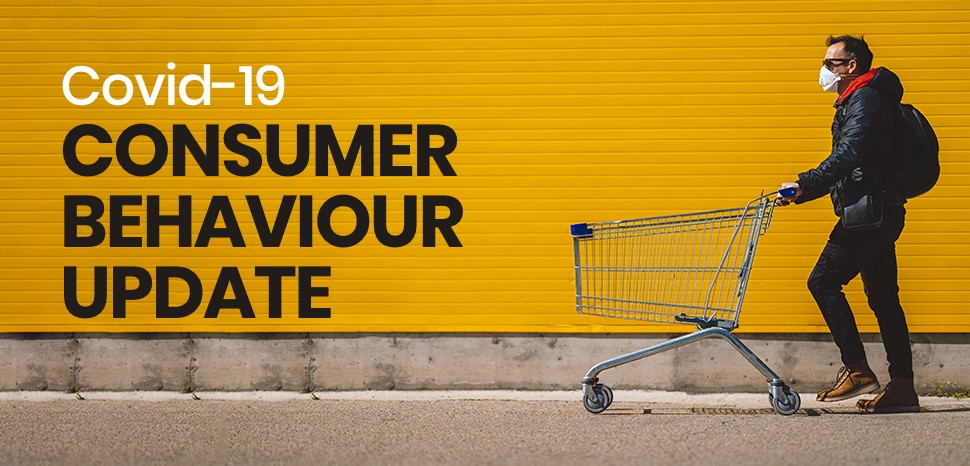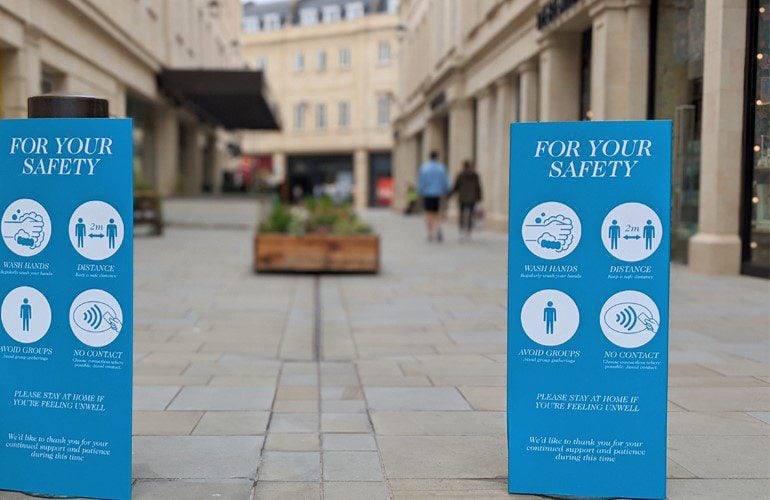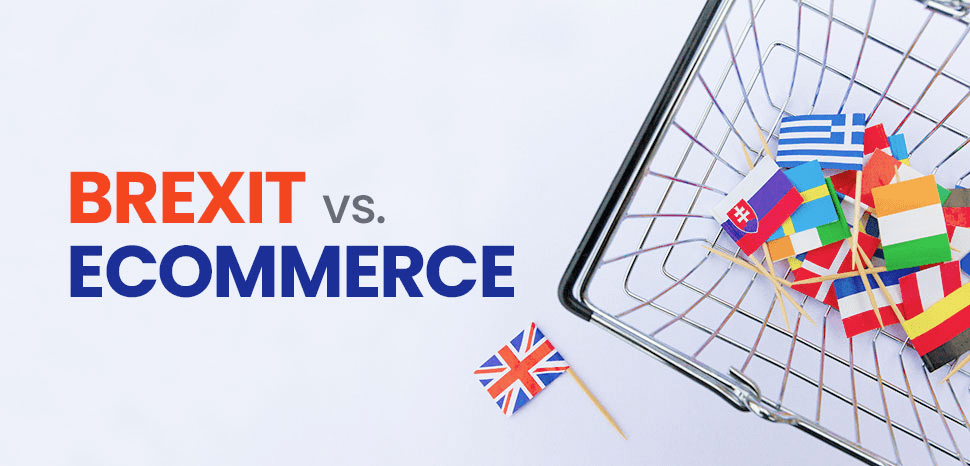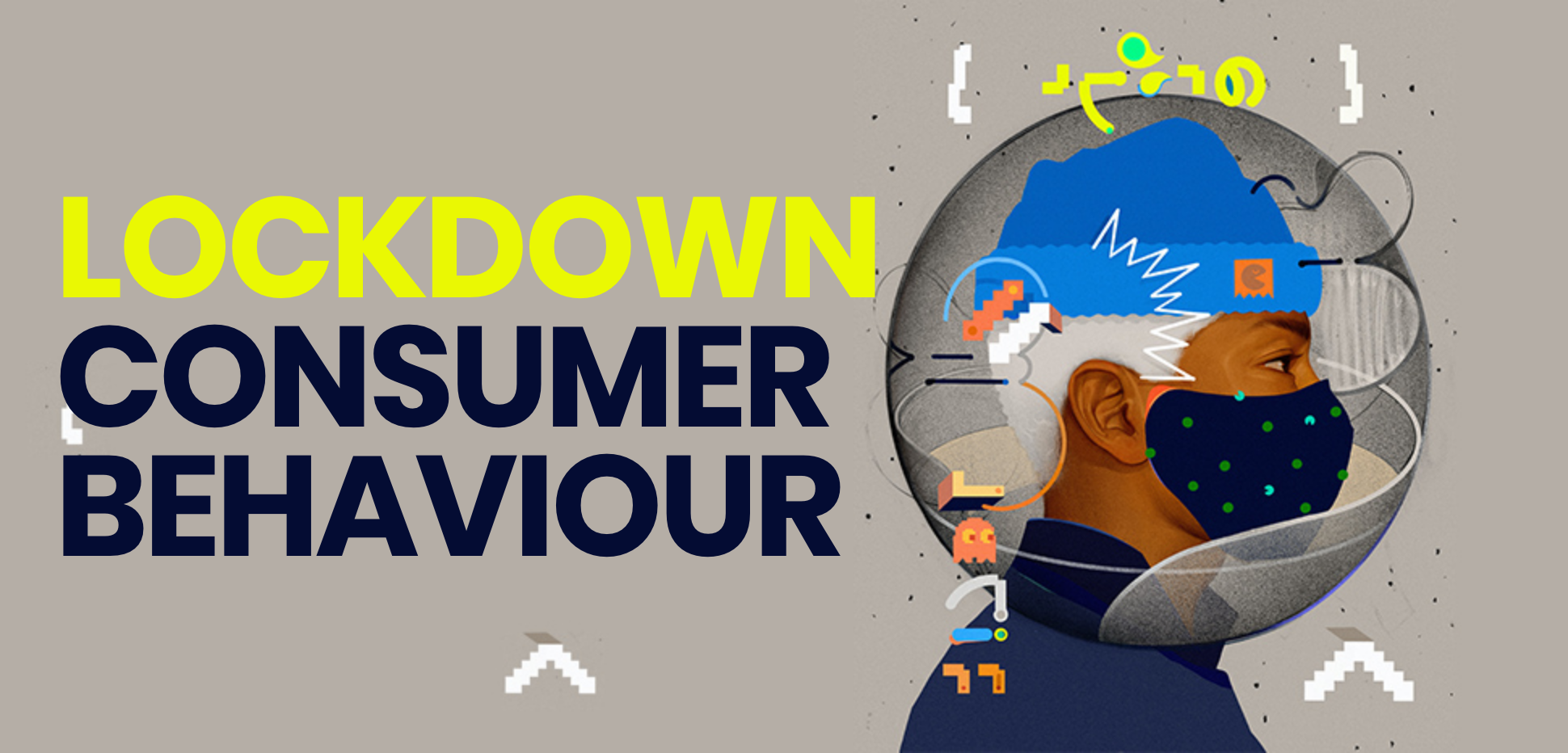Covid-19 consumer behaviour update

Article topics
- Shopping
- Retail footfall
- Work
- Entertainment and socialising
- Final thought
Find out how the Covid crisis is continuing to change the way people shop. This is our Covid-19 consumer behaviour update.
As the UK emerges from the immediate Covid crisis and begins to pivot from lockdown to post lockdown, the economy is slowly reopening for business. It’s becoming clear that the impact lockdown has had on consumers (is still having) is marked and perhaps irreversible, potentially taking years to settle into a perceived sense of ‘normal’ shopping behaviour.
Shopping
The home during lockdown for most consumers became their entire world, work lives, social lives, entertainment and socialising all taking place in a few hundred square feet of house or apartment. In post lockdown some of the attitudes and preferences acquired during lockdown have stuck. Even though overall consumption has declined, ‘at home’ products and services have continued to lift:
- B&Q and Screwfix owner Kingfisher saw 225% growth in online sales in June
- 90% of back-to-school shoppers in the UK made purchases online
- 27% of UK consumers are planning to start Christmas shopping earlier this year
- Amazon’s net sales are up 40% year-on-year for Q2 2020
Overall, consumption will inevitably continue to decline. In the UK a 12% drop in consumption is expected over the next two years, with economic recovery to pre lockdown levels not expected before 2024. But eCommerce businesses that are in tune with the change in consumer behaviour have seen a surge that has compressed several years of growth into a few short months.
Retail footfall

Retail footfall in the UK continues to rise but is still 32% lower year-on-year. Footfall across retail sectors seems to be improving, albeit at a slow rate. In the week commencing 10th August, footfall was down by 32% compared to the same period in 2019, according to reports from the ONS, indicating that overall footfall for August will continue the slow recovery it began when shops reopened in mid-June.
Further data from the ONS indicates that 70% of UK shoppers made a trip out to purchase essential items, such as food and medicine, during the period 12th-16th August, while just a quarter went shopping for non-essential items, which shows that eCommerce remains the preferred way to shop for non-essential products.
Work
Many consumers who were able to continue working during lockdown are continuing to do so post lockdown, with a majority still reticent about returning to the office, the call centre or studio, with a significant rise in the use of collaboration tools such as Zoom and Slack. Daily use of Zoom rocketed from ten million to 200 million in just three months, with Slack’s paying customers having doubled.
A survey conducted by Q&R revealed that 97% of employees have stated that they have reservations about returning to work in the office with 82% nervous about the logistics of getting there.
Of course, many consumers were unable to continue to work during lockdown and either remain furloughed or have lost their jobs. Unemployment is expected to rise in the UK to levels not seen since the 1980s.
According to the ONS, 730,000 consumers have lost their jobs since March 2020, which includes another 81,000 let go in July. The number of hours worked per week shrank by a record 203.3 million year-on-year in Q2 2020. Those most affected are youngest and oldest in the working population, as well as those in lower-skilled jobs. And as of June 2020, around 7.5 million consumers are furloughed, with 3 million of them being off work for more than three months, which will significantly impact their shopping behaviour as disposable income is squeezed.
Entertainment and socialising

Consumers isolating at home during lockdown spent more time on entertainment, but less money overall as digital entertainment is generally cheaper than going to the pub, the cinema, bowling, a live music event or dining out.
The number of apps downloaded from the App Store and Google Play for Q2 2020 rose by 31.7% to 37.8 billion, according to a Sensortower report. Zoom was the most downloaded app globally between April and June, beating TikTok which came second. As a result, Zoom is just the third app in history that has surpassed 300 million installs in any one quarter, alongside TikTok and Pokemon Go.
Overall, downloads of gaming apps are up more than 30%, and 45% of consumers are using more streaming services at home, such as Netflix and Disney+, which increased their base by 16 million and around 25 million consumers accordingly during lockdown— it previously took Netflix seven years to hit 16 million subscribers.
Out of home entertainment and activities are adapting their offerings for a post lockdown world. The British Museum has created virtual tours using Google Maps and New York’s Met Opera is streaming some of its performances.
Research from Barclaycard found that the average consumer in the UK spent £771 during lockdown, with the total UK spend reaching £40.6 billion on non-essential purchases, such as books, games and subscriptions.
On average, men were much more likely to spend money, parting with £1014 over the lockdown period, whereas women spent £572. Londoners and parents with kids under the age of 18 were the two highest spending groups out of all those surveyed, spending £2812 and £2070 respectively. Of those who had bought non-essentials, 80% claim they will be keeping all the items they had purchased and just 6% say they have buyer’s remorse.
Final thought
As national lockdown lifts and the economy begins to turn, consumer behaviour will continue to change. Continuing concerns about contagion, local lockdowns and worries about the looming recession will be significant drivers of shopping behaviour in the UK for quite some time to come, for brick-and-mortar retail and for eCommerce businesses alike.
How is your business coping in an ever-changing Covid world? If you would like to know more about how trading online can help business agility, whether transforming your existing webstore, or whether you’re new to online trading, get in touch today for a chat with one of our eCommerce experts.


 Back
Back
